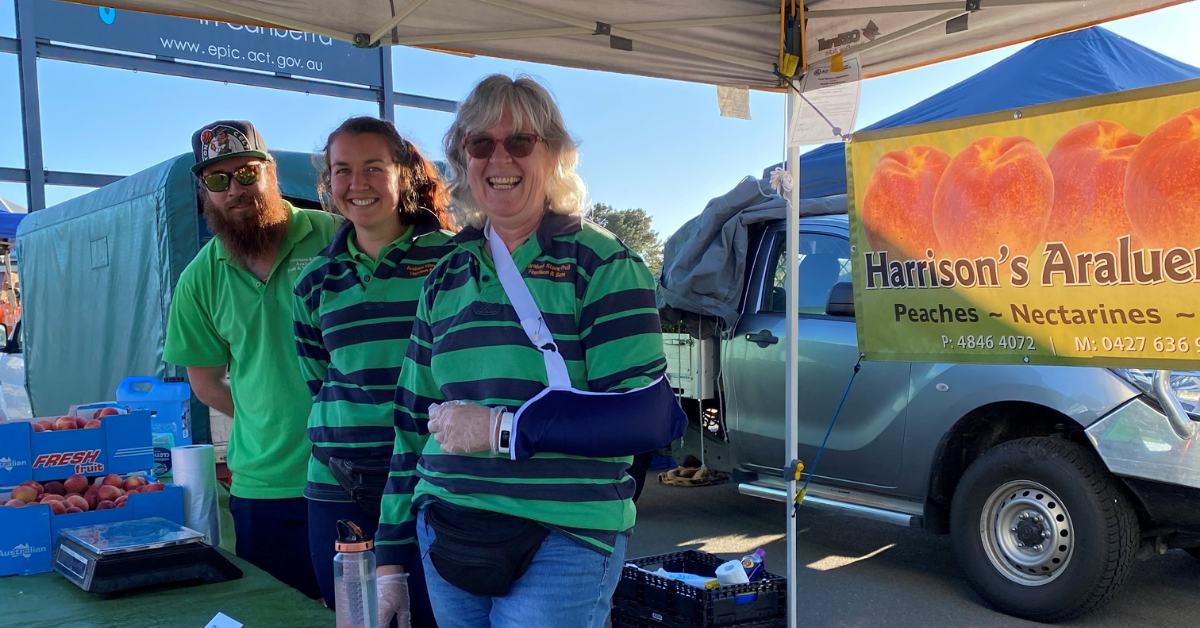Farmer in Focus: Tracey and Ken from Harrison and Sons

With the year we’ve all had, it’s easy to forget just how devastating last summer’s bushfires were, but it’s not so easy to forget for one of our longest running stallholders Harrison and Sons who grow their stone fruits and vegetables in the Araluen valley.
The fourth-generation family run farm has been in business since the 1930s and has appeared at our Market since the first 12 months of our existence. They produce peaches, nectarines, and citrus, as well as vegetables in summer (tomatoes, capsicum, corn, pumpkin, potatoes, cucumbers, zucchini, cauliflower, cabbages, broccoli), lucerne hay, sheep, and Limousin/Angus cattle.
The first bushfires that threatened Araluen, the Currowan and North Black Range blazes, started from suspected lightning strikes in late November, and between then and the early February rains that finally exhausted the danger, there were fires constantly threatening from all directions.
On January 4, the fire that had originally been burning on the Clyde Mountain, and had by this stage been segmented into a number of fires being fought on multiple fronts, came to a devastating head for many. The fires in the area all reached emergency level and in the afternoon a pyro-cumulonimbus had formed over the Currowan and Charley’s Forest fires, while further down the coast residents between Broulee and Nowra were told to brace themselves as it was too late to leave.
The fires burning up towards Araluen were unstoppable, racing through the Monga National Park before reaching Araluen and Reidsdale. Thankfully, the damage wasn’t as severe as other parts of the state, and no lives were lost in the area.
Nonetheless, the damage to Harrison and Sons’ orchard was serious.
Tracey tells us that a lot of the trees were scorched, some worse than others, and the irrigation was burnt to the point of being unusable. She explains that due to the nature of the scorching, it’s still hard to tell the full extent of the damage, and they’ll have to wait two years to see what sort of regrowth they will get.
“The support everybody has given us has been amazing, both the customers and the Rotary people, who have been there through the thick and thin,” Tracey says.
“Personally, I’d like to thank everyone that comes to the Market for their support, and for the love that they shared with us; we had tears with lots of our customers, everyone wanting to know how we’re going and sort of just checking in on us.”
Although the damage to the orchard might be too much for the trees to recover from, Tracey says that their vegetable operation that starts out in winter with germinating seeds inside their homestead by the fireplace is getting stronger every year.
“Moving forward, we’ll just have to wait and see what happens with the orchard, but I presume we’ll still have veggies for a while. We’ll have to wait for the two-year cycle [in the orchard] to work itself out and we’ll see what happens next.”
“We love getting to talk to the customers and getting to hear their responses and what they think of the fruit and veggies we grow. Seeing and hearing their enjoyment is what keeps us coming back.”


